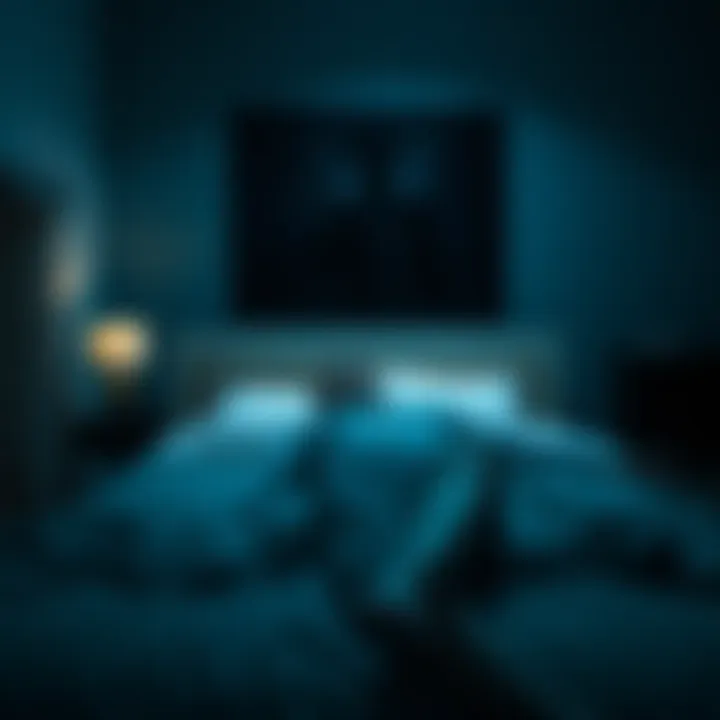Sleep Paralysis | Fearful Encounters with Shadowy Figures
Edited By
Natalie Quinn

The phenomenon of sleep paralysis continues to captivate and terrify people across various forums. Recently, numerous individuals shared their experiences with encounters involving shadowy figures during these episodes, often resulting in severe dread and panic.
The Frightening Reality of Sleep Paralysis
Sleep paralysis can strike unexpectedly, leaving many to grapple with an overwhelming sense of fear. "I often wake up unable to move and feel a dark presence in the room," one person recounted.
Common Coping Techniques
Several commenters provided advice on dealing with these disturbing experiences. Some swear by spiritual practices: "I grown up in Christianity and used Hail Mary or Our Father to combat them," a participant noted. Others suggested physical actions, like rolling off the bed as a quick escape.
Effective Strategies:
Praying can provide solace for some.
Breathing control might ease the stress of paralysis.
For a few, simply rolling off the bed works wonders.
"It’s easy. Don’t panic, close your eyes and control your breathing," advised another commenter, implying it's all about mindset during these experiences.
Exploring the Shared Experiences
Many who have undergone these frightening episodes seek community support for an understanding. "Has anyone had similar experiences, or figured out how to stop them?" one user asked, echoing a general sentiment among individuals looking for answers. This community discussion amplifies the ongoing conversation around a phenomenon that remains scientifically ambiguous.
Key Insights from the Discussion
😟 Many report overwhelming fear accompanying sleep paralysis.
🙏 Spirituality plays a key role in calming anxiety during episodes.
💪 Physical reactions, like rolling off the bed, are suggested as effective.
Curiously, this dialogue around sleep-related disturbances emphasizes both the psychological and physical intersections of fear. As more people share their stories, understanding this phenomenon may slowly come to light, fueling ongoing discussions about sleep and the subconscious.
While fears about what lurks in the dark during sleep paralysis might persist, community experiences could pave the way for better coping methods.
Anticipating the Path Ahead
Experts predict that as the conversation around sleep paralysis continues to grow, mental health professionals may take a stronger interest in these reported experiences. With up to 30% of people experiencing sleep paralysis at some point, there’s a robust chance that targeted research could lead to therapies designed specifically for anxious individuals during these episodes. Additionally, the rise of online forums might foster a collective discussion, which could prompt universities to conduct case studies based on shared narratives. This could further lead to better coping mechanisms tailored to this unsettling phenomenon and potentially mitigates fear through user-led practices.
Echoes from History
Looking back, one might draw a parallel to the way people in the past dealt with sleep disturbances through folklore and tales of spirits. Just as communities once relied on storytelling to explain the unexplainable, today’s online forums serve a similar purpose—providing a collective platform to voice fears and find skepticism and solidarity. Much like how the Salem witch trials were fueled by fear of the unknown, modern narratives around shadowy figures in sleep paralysis reveal an evolving understanding of the human psyche against the backdrop of cultural beliefs. As history shows, finding answers often intertwines with the social fabric, suggesting sleep paralysis could pave the way for deeper explorations into fear itself.
